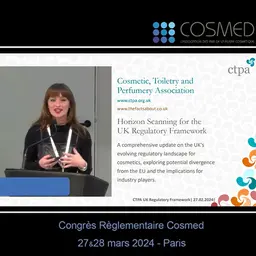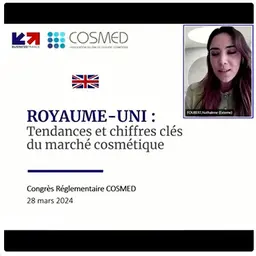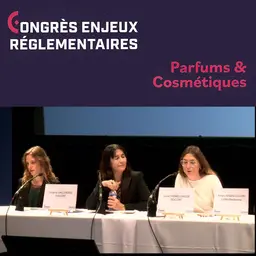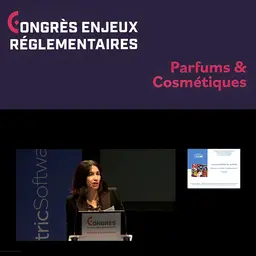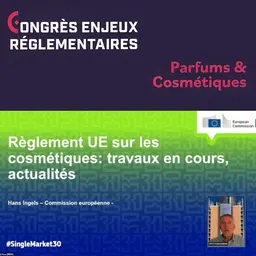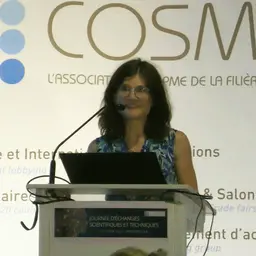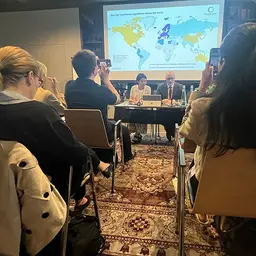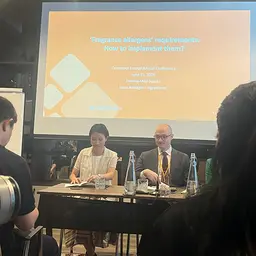
Customer data has been a real gold mine for companies for a few years. It represents significant trade and marketing advantages if it is efficiently used. Of course, the cosmetics industry is also concerned, since it gathers and processes considerable volumes of data. At the e-Beauty conference organized by Journal du Numérique on June 7, 2017, three French companies explained how they collect and use this well-known data.
Anne-Laure de Belloy, founder of the
lucette.com
website, Quentin Reygrobellet, General Manager of Birchbox France, and Armelle Soudy,Digital and CRM Directorl of Beauty Success Group, explained how they use their customer data and showed how important these methods are in their trades.
Lucette is a beauty algorithm which helps consumers find beauty products in line with their expectations, Birchbox provides a monthly beauty box service with a selection adapted to every buyer’s profile, and Beauty Success Group is a franchisor specialized in retail and treatment areas. Although they are all different from one another, these three organizations share a common point: the importance of data in their marketing strategies.
Customer data: what for?
Quentin Reygrobellet explained that in his company, the information collected on customers is essential.
‘Today at Birchbox, we have three values: the first is selection. We need to offer the best cosmetics brands on our website. The second is personalization, and that is when data comes into play, since, every month, we send 80 types of different boxes, depending on our subscribers’ profiles. And all this feeds our third value, which is absolutely fundamental, and that is prescription. One million women pay €13 per month to receive a box containing products they have not chosen themselves. They do not know what is in it exactly, but they know that when they open their parcels, the products will be personalized according to both their expectations and current and future needs, as part of a discovery cycle. It is the first step towards a better experience in cosmetics consumption,’
he argued.
At Lucette, customer information is just as crucial. If consumers want to use the platform and find cosmetics that suit their tastes, they need to fill in a questionnaire. Once processed, the information makes it possible to filter and offer them the selection best adapted to what they like.
As for Armelle Soudy, she explained that
‘at Beauty Success, there are three million subscribers to our loyalty programme, like Sephora. It is all centralized in a card. Today, all this data is collected on the e-shops, and mainly at points of sale. The data helps better target marketing and promotional operations.’
What information is compiled? How?
‘The data collected have different characteristics. First, we keep the information related to consumers’ beauty profiles (physical features, beauty behaviour, products used…). Then, we also pay attention to the feedback users post on cosmetic products, because we need to know exactly what they like or not. Likewise, browsing information is precious: we know which pages were visited by consumers on our website, so we are aware of the categories they are mostly interested in. Meanwhile, we collect a lot of information on cosmetics. The idea is to associate user profiles with beauty products, so they can match,’
Anne-Laure de Belloy revealed.
Birchbox also follows the online questionnaire model, which is essential for customers to receive cosmetics that suit them. Quentin Reygrobellet added that
‘there is an exchange with the community throughout the test cycle. Satisfaction forms are available for us to discover what each consumer liked or not.’
Lastly, with distributor Beauty Success Group, it is the loyalty card that records the data, in particular the number of visits and the products purchased.
What happens then?
Data is not only used to satisfy customers. It is also very precious for brands. Anne-Laure de Belloy revealed that
‘data is used to offer brands services.
First, we organize reputation campaigns. They consist in helping brands generate well-informed and very positive comments on certain products and making them appear on top of the list on Google.
Then, we prepare studies to help brands carry out correlation analyses for them to better understand the profiles of the women that like their products – or not.
In addition, Lucette sets up consumer meetings. But beware; our approach is different from other organizations, because we can identify the most relevant consumer profiles within our community. So, the resulting product tests are better targeted.
Ultimately, we are a close partner of French TV channel TF1. We help them qualify their audience to offer beauty advertisers more targeted campaigns.’
As for Quentin Reygrobellet, he pointed out that
‘thanks to our online store, we can tell brands which products do well or not. Then, we act as a research centre with forms to be filled in at the end of the tests. Today, our response rate ranges between 15% and 25%, so, for example, for a 200,000 product campaign, we can send between 30,000 and 50,000 qualified customer answers. There is no financial agreement with brands, we actually supply this data for free.’
The information related to customers’ consumption habits is very popular among companies and brands, because it is a real gold mine. Data is important for new cosmetics development policies, especially as the trend is towards personalization.
JS

